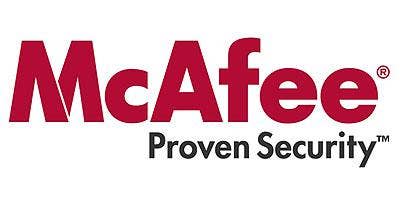ChannelWeb Law and Order: 10 Recent (Alleged) Tech-Related Crimes

Technology crimes have become somewhat commonplace, with hackers digging into to networks to glean information; phishers trying to steal financial details and spammers overloading inboxes worldwide with enough junk to choke an elephant. But not all technology crimes involve the technology itself. Sometimes, high profile executives for technology companies get brought up on fraud charges or, in one recent case, a San Francisco network admin gets taken down after allegedly rigging the network to keep all others out.
Here we've rounded up a handful of some more recent criminals, or alleged criminals, that are all linked by one common thread: Somewhere, technology comes into play. Whether it's where they work or the tools they used to commit their acts, the tech industry is one shady area.

A London court this week refused to block the extradition to the U.S. of a British hacker accused of breaking into Pentagon and NASA computers. Gary McKinnon (pictured), 42, however, claims he accessed those restricted areas while searching for information on UFOs.
It's alleged that McKinnon cracked into nearly 100 U.S. Army, Navy, Air Force, Department of Defense and NASA computer systems between February 2001 and March 2002, ultimately causing $900,000 in damage. McKinnon has not denied accessing those systems, but said he was hunting down evidence that the U.S. was covering up the existence of aliens. McKinnon was arrested in 2002, after software used in his hacks were linked to his girlfriend's email account.
Stateside, McKinnon faces charges in connection with a series of cyber attacks. Officials allege that he stole passwords, attacked military networks and wrought hundreds of thousands of dollars worth of computer damage.
McKinnon's legal team alleges that he was threatened by an American official, who said he would serve a lengthy sentence here if he fought the extradition. Britain's House of Lords' decision to not block McKinnon's extradition, was his last legal option in the UK. His lawyer, however, has vowed to appeal to the European Court of Human Rights in France.

Terry Childs, a San Francisco city computer network administrator, has become somewhat of a modern day Robin Hood for a good part of the technology community. Childs, who has been described by prosecutors as "the only system administrator" for San Francisco's FiberWAN network, was arrested July 12 and charged with four felony counts of computer network tampering and a fifth count of causing associated damages over $200,000.
Childs, 43, allegedly took over the city's network preventing access to records, including jail inmates' bookings, payroll files, confidential law enforcement documents and officials' e-mail. Law enforcement officials alleged Childs blocked out all other administrators by changing their access codes. Childs is accused of "tampering with the City and County of San Francisco's FiberWAN network system in such a way as to deny other authorized administrators access to the network and to set up devices to gain unauthorized access to the system," according to a release from the District Attorney's office.
While Childs has entered a not guilty plea and is being held on $5 million bail, he has since divulged the passwords to San Francisco Mayor Gavin Newsom. A motion to have Childs' bail reduced was denied. The case continued to snowball when prosecutors divulged several network passwords in public court filings, which the District Attorney's Office later said admitted was a mistake, and have been taken out of the record.
Pictured here is One Market Plaza, where Terry Childs worked for the San Francisco Department of Technology and where five core Cisco devices that run the city's FiberWAN network are located.

Just days after breaking out of a minimum security prison in Florence, Colo., convicted "spam king" Edward Davidson (FBI mug shot shown) took the lives of the mother of his two children and the couple's two year old daughter, before turning the gun on himself, police have said.
Davidson escaped from the prison on July 20. Police say Davidson was found dead of a self-inflicted gunshot wound alongside the body of Amy Lee Ann Hill, 29, the mother of Davidson's children, and their 3-year-old daughter in Aurora, Colo. Davidson and Hill's 7-month-old son was spared.
According to police, after escaping the correctional institution, Davidson met Hill and forced her to drive him to the Denver area. According to a police spokesman, Davidson slapped Hill twice on the drive back to Florence. Davidson then took the SUV found at the scene and drove to Lakeland before disappearing.
Davidson was sentenced in April to 21 months in a minimum security federal prison camp for sending hundreds of thousands of unsolicited commercial spam messages for his Colorado-based business Power Promoters. Davidson's spamming services were provided on behalf of companies promoting watches, perfume and other products. Between 2005 and 2006, Davidson also sent spam messages that promoted "penny stocks" on the public market with false headers, which concealed the sender from the recipients.
Davidson conducted his spamming activities from his personal residence in Bennett, Colo., where he used a network of computers and servers to facilitate his business.

Robert Alan Soloway, a known "spam king" was sentenced last week to nearly four years in prison after pleading guilty to charges of mail fraud, email fraud and tax evasion. Soloway, 28, of Seattle, was billed as one of the country's most prolific spammers. According to court records, he used networks of proxy computers, including botnets, to send more than 90 million spam messages in three months. His spam advertised "broadcast email" services and products for his Seattle-based business, the Newport Internet Marketing Corp., and contained false and forged headers, which directly violated the 2003 CAN SPAM Act.
The spam messages also included claims that the email addresses used for the products were "opt-in" addresses and the Web site touted a satisfaction guarantee with a full refund. Customers who later complained about the products they ordered, however, were threatened with additional fees and collection agency referrals.
Soloway (shown here in a courtroom sketch) was arrested in May 2007 and pleaded guilty in March to charges of mail fraud, fraud in connection with electronic mail and failure to file at tax return. He also admitted to earning more than $309,000 for his spam-related activities in 2005, a year in which he did not file a tax return. Soloway was later indicted in May and was sentenced this month to 47 months in prison and ordered to perform 200 hours of community service.

A 23-year-old Oregon man was convicted this month and sentenced to serve 4 years in prison for selling illegal software on eBay. According to court documents, Jeremiah Mondello created more than 40 bogus user names on eBay and PayPal, an eBay-owned online payment service, and ran thousands of auctions peddling pirated software. Mondello brought in more than $400,000 in personal profit between December 2005 and October 2007.
Mondello pleaded guilty to counts of copyright infringement, mail fraud and aggravated identity theft in May. In addition to the 48 month jail term, Mondello was sentenced to three years supervision following his bid and 150 hours of community service per year.
Officials also seized Mondello's personal computers and $222,000 in cash.
The Software and Information Industry Association (SIIA) brought Mondello's case to the attention of authorities in its bid to crackdown on fraudulent software sales.
"Mondello is a whiz-kid who used his smarts and savvy to rip off software makers and consumers," said Keith Kupferschmid, senior vice president of Intellectual Property Policy and Enforcement for SIIA. "We are fortunate that he has been stopped, but there are hundreds more like him running illegal operations on eBay and other sites."

Lori Drew, the MySpace mom who allegedly indirectly caused a teen girl to commit suicide through "cyber bullying," is looking to have her case dismissed. Last week, Drew's defense lawyer, H. Dean Steward, filed three electronic motions in U.S. District Court in Los Angeles asking for the dismissal of the charges, arguing that it is not illegal to create fake Internet identities.
Drew, an O'Fallon, Mo., mom was charged in May with one count of conspiracy and three counts of accessing protected computers without authorization to obtain information to inflict emotional distress on 13-year-old Megan Meier, an acquaintance of her daughter, court documents allege. Drew was charged under the Computer Fraud and Abuse Act, which typically focuses on hacking. She allegedly posed as a boy on MySpace using the alias "Josh Evans" to send Meier messages. The alleged messages, which started in September 2006, started out as friendly and expressed romantic interest, but later became abusive. Meier, whose mother said suffered from depression and self-esteem issues, was said to be devastated by the alleged messages and committed suicide.
Drew has pleaded not guilty to the charges.

McAfee security researcher Brett Oliphant, 29, and his brother Bryan, are facing trial on felony fraud charges after they allegedly sold $1.25 million in fake stock and used the earnings for personal gain. The Oliphant brothers stand accused of fraudulent sales of unregistered securities, according to police.
Brett Oliphant is scheduled to stand trial Nov. 18 in Elkhart County, Ind., on a host of charges including the sale of unregistered securities, transacting business by an unregistered broker or agent, fraudulent or deceitful acts with the sale or purchase of a security, and conspiracy to commit fraudulent or deceitful acts with the sale or purchase of a security.
Court documents allege that the Oliphants sold phony stock through joint businesses called 85 West, LLC and Electronic Scrap Recycling Corp. Investigators found that Oliphant provided victims with fake investment documents about his business and used money he took from the scam to pay his rent, buy clothing and purchase a car, court documents allege.
Oliphant was not with McAfee at the time the alleged crimes were committed, which court documents say took place between Nov. 1, 2004 and Aug. 31, 2005. Oliphant joined McAfee in February. At the time of his arrest, Oliphant served as vice president of security services for ScanAlert, an ecommerce auditing service that scans commercial Web sites and provides them with a "hacker safe" Trustmark icon, which McAfee acquired in February. At ScanAlert, Oliphant managed a research team for the company's "Hacker Safe" labs.

A pair of suspected thieves met their match when they allegedly lifted a White Plains, N.Y. woman's Apple laptop in May. The woman, Kait Duplaga, a tech-savvy Apple Store employee, was able to track down the alleged thieves using the "Back To My Mac" program.
According to police, the alleged thieves used the stolen laptop to access the Internet and a friend of Duplaga's sent her a text message saying she appeared to be online. Using Back To My Mac, Duplaga was able to log onto her machine from another Mac and found that the alleged thieves were trying to user her computer to buy furniture.
While logged into her Mac remotely, Duplaga was able to use the Webcam to capture a photo of the suspected thieves, which was turned over to police. Using the photo, police were able to track down Edmon Shahikian, 23, of Katonah and Ian Frias, 20, of the Bronx. The pair were arrested at their homes and charged with second-degree burglary and fourth degree possession of stolen property.

A trio of former high-level Nortel Networks executives were brought up on fraud charges in June after a four-year investigation. According to Canadian authorities, the three execs allegedly were part of the worst stock scandal in Canada's history.
Seven counts of fraud were lodged against ex-CEO Frank Dunn (pictured, courtesy of AFP Photo/Ho/Nortel Networks), ex-CFO Douglas Beatty and former corporate controller Michael Gollogly. The Royal Canadian Mounted Police said charges against them include "fraud affecting public market; falsification of books and documents; and false prospectus, pertaining to allegations of criminal activity within Nortel Networks during 2002 and 2003."
The men have entered not guilty pleas and were released on bail.
The U.S. Securities and Exchange Commission and the Ontario Securities Commission began investigating the former executives in 2003 after Toronto-based Nortel, which also has a U.S. headquarters in Richardson, Texas, allegedly repeatedly restated financial earnings. The SEC filed a civil complaint against them in March 2007. According to the SEC, Nortel went into 2000 with more than $1 billion in revenue through "improper" use of bill and hold transactions.
The complaint noted that Nortel suffered serious losses starting in February 2001 when it lowered its guidance to account for its business losses. As Nortel's business plummeted throughout the remainder of 2001, the company began a restructuring that resulted in cutting its workforce by approximately 60,000 and had significant write-downs of assets. As part of the reorganization, Dunn became Nortel's president and CEO. The SEC said that by the summer 2002, Dunn publicly announced that he expected Nortel to return to profitability by the second quarter of 2003. That's when more even more trouble was heaped on the company.
Dunn was terminated by Nortel in April 2004 and Beatty and Gollogly were also fired. Nortel was forced to restate financial results back to 2001, creating a panic on Wall Street that resulted in investors dumping shares, which plummeted.
After facing shareholder lawsuits, Nortel agreed to settle two class-action lawsuits for $2.47 billion in February 2006. That same year Dunn, Beatty and Gollogly filed suit against Nortel in Ontario Superior Court asserting claims of wrongful dismissal that among other things caused Dunn "mental distress" and sought compensatory, aggravated and punitive damages.
In October 2007, Nortel reached a settlement on all issues with the SEC's investigation of the company's previous accounting practices, and agreed to pay a civil penalty of $35 million. Nortel also said it would provide the SEC with quarterly written reports detailing its progress in implementing its remediation plan.

A pair of Orange County, Calif. teenagers (shown here in their Orange County Sheriff's Department booking shots) were arrested in June and charged with multiple felonies after being accused of hacking into their school's computers and planting spyware to change their grades. The pair, both 18, allegedly hacked the system between January and May 2008.
During that time, court documents allege Omar Khan (right), of Coto de Caza, Calif., broke into Tesoro High School on several occasions using a stolen master key. Once inside, he allegedly attempted to steal his teachers' login credentials and passwords to change his and 12 other students' C, D and F grades to As and Bs. Khan also allegedly planted spyware on teachers' computers to access the school network remotely. He was charged 69 felony counts that include second degree burglary, identity theft, computer access and fraud, removing and secreting a public record, and altering and falsifying a public record, charges that carry up to 38 years in prison if convicted.
The other teen, Tanvir Singh (left), of Ladera Ranch, Calif., was accused of conspiring with Khan and charged with four counts that include conspiracy, burglary, computer fraud and altering a public record when he allegedly tried to break into a classroom to steal the answers to a test before an exam. If convicted, the second teen could face a three-year prison term.
Singh is free on his own recognizance, while Khan is out on $50,000 bail. Khan has retained high-profile celebrity lawyer Mark Geragos, who defended Michael Jackson and convicted murderer Scott Peterson.
During their arrangements this week at the Harbor Justice Center in Newport Beach the pair entered pleas of not guilty. They were ordered back to court for a Sept. 16 pretrial hearing.